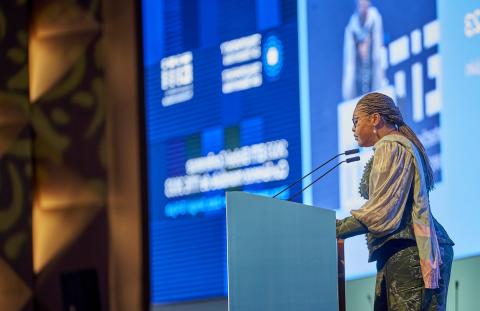
Central African Republic
Overview and role of the EITI
The Central African Republic’s mineral reserves primarily consist of diamonds and gold, however the sector remains largely informal and has historically been a source of conflict.
The Central African Republic was suspended from the EITI in 2013, when the EITI Board concluded that the EITI could not be effectively implemented due to political instability. The country was suspended from the Kimberley Process in the same year, but some regions were since deemed compliant as of 2015.
In October 2021, the EITI Board agreed to lift Central African Republic’s suspension. The country is undertaking an adapted approach to EITI implementation, adopting flexible reporting and limiting implementation to geographical areas compliant with the Kimberley Process. The country aims to use the EITI to support the government’s plans to formalise the mining sector, attract investment and strengthen governance.
Innovations and policy reforms
-
In August 2022, a draft law for a new Mining Code was submitted to the National Assembly, requiring holders of mining titles to comply with the principles and requirements of the EITI Standard, the Kimberley Process and the International Conference on the Region of Great Lakes (Article 21). The draft Mining Code also requires disclosure of beneficial owners (Articles 22 and 85).
-
Central African Republic uses EITI implementation to report on the management of its forestry sector.
Extractives sector management
Tax and legal framework
The mining sector in the Central African Republic is regulated by Law No. 9.005 of April 29, 2009, which establishes the Mining Code, along with its implementing decree n°9.126. A key reform in the extractive industries is anticipated through the introduction of a new Mining Code.
In the aftermath of the military-political crises of 2013, the Central African Republic faced suspension by the Kimberley Process from April 2013 to June 2015. This suspension was partially lifted in July 2015, accompanied by an Operational Framework for the resumption of exports of rough diamonds. Further refinements were made at the plenary session of New Delhi in November 2019.
Beneficial ownership
The Central African Republic currently lacks a legal framework for the public disclosure of beneficial owners for the mining, oil and forestry sector. The EITI work plan for the period 2021-2024 aims to implement measures to establish a public beneficial ownership register for companies operating in the extractive and forestry sectors.
EITI implementation
Governance
ITIE RCA is administered by the Central Africa Republic Multi-Stakeholder Group (MSG). The MSG is chaired by the Prime Minister, Mr Félix Moloua.
Timeline
Government announces commitment to join the EITI
Multi-stakeholder group is formed
Candidature application is submitted
Central African Republic joined
Designated Compliant Country
2010 EITI Report published
Report
Suspension is lifted
2020 EITI Report published
Report
2021 EITI Report published
Report
Validation
The Central Africa Republic is expected to commence Validation against the 2019 EITI Standard in April 2024.
Key documents

Central African Republic 2021 EITI Report

Central African Republic 2021-2024 EITI work plan

Central African Republic 2020 EITI Report

Central African Republic Collection of Statistical and Fiscal Data Report




